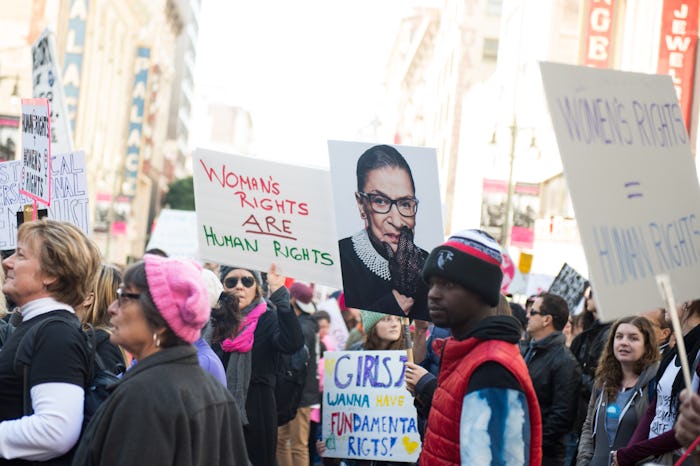News

Here's The Official Women's Strike Date
The organizers of the Women's March on Washington have recently unveiled their next step: "A Day Without A Woman." The idea was floated a little over a week ago, and now we know the women's strike will happen on March 8, also known as International Women’s Day. While the Women's March took place on a Saturday, causing as little inconvenience as possible, the strike will happen in the middle of the work week, and aims to cause a bigger impact than increased Metro ridership or forcing men to take care of their kids for an afternoon.
The organizers elaborated on Instagram on Tuesday:
In the spirit of women and their allies coming together for love and liberation, we offer A Day Without A Woman. We ask: do businesses support our communities, or do they drain our communities? Do they strive for gender equity or do they support the policies and leaders that perpetuate oppression? Do they align with a sustainable environment or do they profit off destruction and steal the futures of our children?
We saw what happened when millions of us stood together in January, and now we know that our army of love greatly outnumbers the army of fear, greed and hatred. On March 8th, International Women’s Day, let’s unite again in our communities for A Day Without A Woman. Over the next few weeks we will be sharing more information on what actions on that day can look like for you.
This isn't the first protest of its kind, and there is precedent for real change: in October 2016, when Poland was considering making its extremely strict abortion laws even more restrictive, women turned out in droves to protest in a "Black Monday" strike, causing parliament to reject the bill by an overwhelming margin of 352-58. According to the BBC, the government credited protesters with giving them "food for thought."
For those wondering if it's possible for the strike to match the incredible participation numbers of the Women's March, ask any Icelandic person over 40. In 1975, Icelandic women, frustrated by their work being undervalued, took a "day off." And we're not just talking about a handful of radicals; 90 percent of women in the country left their houses that morning and refused to go to work, cook, clean, or take care of their children. Many businesses were forced to close, others worked at half-capacity, and men who were forced to take their kids to work with them look back on it as "the long Friday," according to The Guardian. Unfortunately, Icelandic women still don't receive equal pay (I mean, who does?), but the strike did correlate with the election of the world's first democratically-elected female president, Vigdís Finnbogadóttir, five years later. As Women's March co-chair Bob Bland said, "This is a marathon, not a sprint."